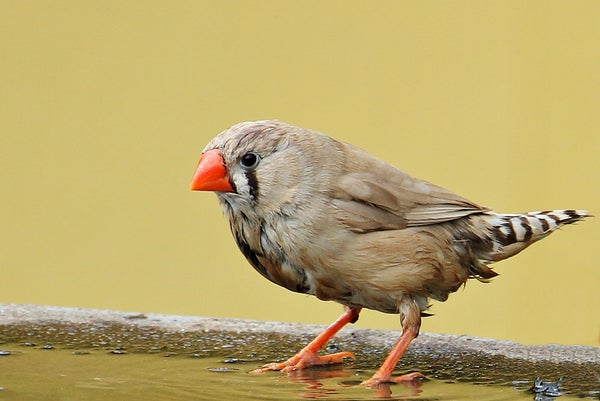關於支援科學新聞業
如果您喜歡這篇文章,請考慮透過以下方式支援我們屢獲殊榮的新聞業 訂閱。透過購買訂閱,您正在幫助確保未來能夠繼續講述關於塑造我們當今世界的發現和想法的具有影響力的故事。
有時,解決問題的最好方法是睡一覺。這種方法似乎不僅被人類採用,也被鳴禽採用。事實上,根據週五發表在《科學》雜誌上的一份報告,斑胸草雀可能非常依賴睡眠來排練它們的歌曲。
芝加哥大學的 Amish S. Dave 和 Daniel Margoliash 著手研究鳴禽運動活動和聽覺反饋之間的關係,他們在白天鳥類唱歌時研究了斑胸草雀前腦中的神經元。然後,他們觀察了這些生物在睡覺並暴露於它們歌曲錄音時相同的神經元。他們發現了一種驚人相似的模式。研究人員表示,這種相似性表明,鳥類會將它們聽到的歌曲存檔,並在打盹時“離線”練習。
他們在報告中寫道:“我們對睡眠研究期間感覺運動模式的神經元重放的觀察,與海馬體研究的資料一致,這些資料表明睡眠對於鞏固空間記憶的神經元時間碼非常重要。”
